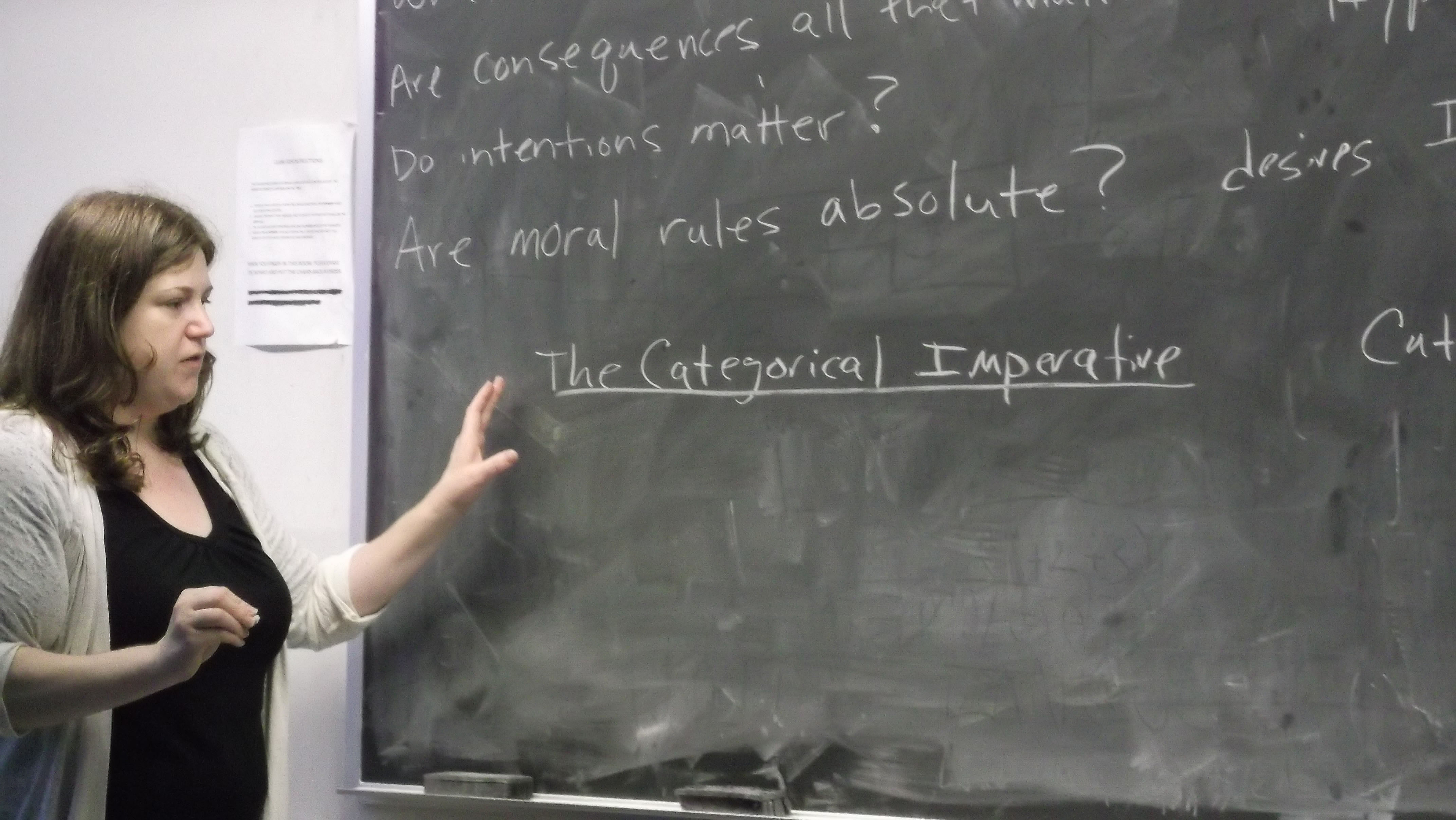What constitutes a good life?
Stacie Thyrion, a doctoral student in philosophy in the University of Virginia's Graduate School of Arts & Sciences, is exploring that question with students in a summer-session philosophy course.
"It's an introduction to ethics," Thyrion said. "It deals with determining if we are living a good life and being able to judge if others are leading a good life."
She said that these are questions that have intrigued philosophers, including Plato and Aristotle, for centuries.
"There are standards to which we can objectively agree, such as it's wrong to torture small children," Thyrion said. "But then for some, a good life is one that is full of pleasure and not pain, or your desires are all satisfied, or you have good health and satisfying work. We have a lot of options."
In class, Thyrion presents students with ethical dilemmas and lets them ponder their way through, considering the implications of each decision. Thyrion said the students use experiences in their lives in weighing the theories.
"There are a lot of moral interpretations and judgments," she said.
Jill Wright, 21, a rising fourth-year biology major from Danville, is planning a career in health care and appreciated the discussions on ethics.
"I had taken other philosophy courses and this topic caught my eye," she said. "I like the discussions we have and examining consequences. Things aren't as simple as they look and we have to take different things into consideration."
"I am trying to get across to the students that we make a lot of moral judgments in our ordinary lives," Thyrion said. "What we are doing in this class is talking about what's going on when we make those moral judgments, maybe in a more careful way than we do in our ordinary lives."
Thyrion said students are constantly making decisions about how to spend their time, money and talent.
"We've talked about the kind of decisions they make – whether they should sacrifice things for certain people in their lives, roommates, or friends or family members; where they ought to feel obligated to give time or money to charitable causes," she said. "We are trying to sort out what ways we can think really carefully about these questions that they care about outside of class."
Kerry Mitchell, 19, of Richmond, a rising third-year psychology major who is minoring in art history, said she enjoys pondering the classroom discussion questions.
"I am interested in how and what people think," she said. "I have learned a lot about different theories I hadn't known existed."
Thyrion, 34, a Wisconsin native, began her undergraduate career at the University of Minnesota as a biology major, but switched to philosophy because "there are a lot of important questions that matter as I sort things out for myself."
"I can talk to young people and they can realize these questions matter in their lives," she said. "They can get a really clear sense of what they value and how to treat people well."
While she helps them with the difficult questions of life, she also teaches them how to structure written arguments.
"Since it is an introductory course, I teach them what philosophy is and how to write a philosophy paper," Thyrion said. "Writing really clear and careful papers will be useful to them in all their other classes."
– by Matt Kelly
Media Contact
Article Information
June 25, 2012
/content/uva-students-ponder-ethical-questions-summer-philosophy-course

